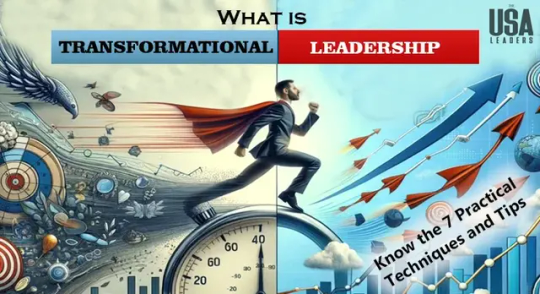#leadership techniques
Text
Are you a Leader or a Follower? Exploring both Avenues
Daily writing promptAre you a leader or a follower?View all responses
The choice between being a leader or a follower depends on personal preferences and the context. Leaders take charge, provide guidance, and make decisions, while followers support and implement the leader’s vision. Some people thrive in leadership roles, enjoying the responsibility and the opportunity to influence others.…

View On WordPress
#dailyprompt#dailyprompt-1939#effective leadership#leadership#leadership development#leadership in the workplace#leadership mindset#leadership qualities#leadership skills#leadership strategies#leadership styles#leadership success#leadership techniques#leadership theories#leadership tips#leadership training#leadership traits
2 notes
·
View notes
Text
Decisive Leaders
Photo by Tegan Mierle
Decisive leaders seek out the appropriate information they need to make good decisions. Basically they have a broad understanding of the knowledge held by their team, colleagues, and leaders, henceforth this information helps them make faster and better decisions.
Decisive leaders are generally quick to decide and slow to change their minds, decisiveness does not mean…

View On WordPress
#Decision-Making#Decision-making process#Effective leadership#Executive leadership#Inspirational leadership#Leadership accountability#Leadership communication#Leadership development#Leadership empowerment#Leadership influence#Leadership mindset#Leadership qualities#Leadership skills#Leadership strategies#Leadership Styles#Leadership success#Leadership techniques#Leadership vision#Strategic leadership
0 notes
Text
What A Leader Can Do To Transform Society, Starting With School

Who is a Leader?
Talking about leaders, we always assume them to be cold, harsh, strict, and unempathetic. But can such people be called leaders? Unfortunately, the answer is 'No.'
A leader is someone who inspires team members and motivates them toward achieving a particular goal. In other words, a leader is someone who performs the task of leadership, which is the act of influencing and motivating people to follow. It is a skill that can be learned by following the right approach. Making students learn this essential skill right from the school level can help them from an academic perspective and make them better citizens and promote education empowerment.
Role of a Leader in the Society
Are leaders born or made? Leadership is not a natural skill but can be learned with patience and conviction. A leader not just leads and directs people to accomplish a task but assumes different roles simultaneously. Given below are the five primary roles played by a leader in society.
Motivator - A leader acts as a motivator and motivates people to achieve specific goals. Good leaders appreciate their team members, provide training, and engage them in decision-making to encourage them to work harder.
Mentor - Leaders act as a mentor for their team members and guide them in the right direction to help them achieve success. They provide their mentees with a foundation for building a successful career.
Learner - A leader is not just a mentor but also has the role of a learner. Leaders keep constantly evolving by enhancing their knowledge and skills to perform their job in a better way and be role models for their mentees.
Communicator - One of the essential skills for a leader is to be a good communicator. It involves effective listening and effectively communicating with the help of the right set of words, body language, and voice tone.
How can Good Leadership at School Level Help Bring Change?
As previously stated, leaders are made, not born. Teaching leadership to students right from the school level can help them enhance their careers and lead a better life. The role of a leader in a society is crucial as leaders can shape the future of a country, a community, and an organization. Leadership skills can be instilled among the students through various activities and projects organized at the school. Let us see how imparting leadership skills to students at the school level can benefit them -
It helps improve their time management skills and manage their study schedules efficiently.
It enables the students to strategically achieve their goals.
Students can understand their strengths and weaknesses and learn how to get things done.
They learn to work in teams and manage them.
It helps them become more accepting of life's challenges.
It helps them improve their communication skills.
How to Develop Leadership Skills at the School Level?
Great leaders can be built, and starting early is a great way to impart leadership skills to the students and promote education empowerment. Here are some ways leadership learning can be included in a school classroom.
Classroom Activities - The teachers can organize classroom activities and divide the class into small groups. Allow them to choose a leader for their group and assign each group a task. This will help them understand how to be a good leader and what qualities a leader should have.
Giving Them a Choice - Students can choose which topic they want to learn or what way of learning they find more interesting. This will help them develop decision-making skills and team management skills.
Leading by Example - Teachers can be role models for students by exhibiting exemplary leadership skills. For example, motivate them to study hard rather than give orders and communicate well. This will help them learn how to become a good leader and what skills a leader should have.
Encouraging Risk-taking - Risk-taking is one of the essential leadership skills. Allowing the students to take risks, experiment, make mistakes and learn from them will help them develop risk-taking capacity.
Arranging Leadership Workshops - Another great way to promote education empowerment is by organizing leadership workshops. The workshop could include activities that help them learn more about leadership, its importance, and how to be an effective leader.
Teaching leadership skills to students plays a crucial role in education empowerment and helping them achieve their goals with focused minds and the right approach. 21K School - World Campus provides your children with holistic growth opportunities. In addition, the innovative techniques and the wide variety of classroom activities and projects further help instill leadership skills among students early in life.
0 notes
Text
It drives me insane when I see people saying Percy could beat Jason in a true head to head battle because guysssssssssss. You can't use Kronos as an example. Percy didn't even defeat him - Luke did. And Percy needed the Curse of Achilles to stay alive.
Jason defeated a Titan on his own with no powerup! Jason has been training since he was two! Jason was raised by wolves! It's not his fault RR just loves to KO blonde boys for some reason.
#obviously depending on the plane things would shift but jason has been bred into leadership and strategy#percy's main fighting technique is to discover new powers in the middle of a battle lmao#happy talks pjo#jason grace#percy jackson#also anyone who attempts to debate me on this is being ignored and/or blocked because fuuuuuck off#i don't even like jason that much i'd much more prefer to torture him but im thinking logically here okay#percy gets 500 posts about why he's the most powerful let jason have his 1 alright
124 notes
·
View notes
Note
hi hi hi please do share ur reverse au thoughts. especially would like to hear about fukuzawa :]
I think Fukuzawa's not unlike his canon version. He's honorbound and whatnot. There's this whole thing during the very beginning of the main storyline he's trying to avoid getting involved with the ADA, out of respect to his old buddy Mori, of course that goes down the drain when the mafia and ada eventually get pitted against each other.
Misc thoughts:
Fukuzawa eventually joins the Port Mafia as a hit man, Untold Origins never happened so he eventually became disillusioned with his moral code. And being in the mafia kinda messes up your moral code.
He starts climbing up the ranks of the Port Mafia, gets to around the same level as Hirotsu.
He and Mori do their Double Black thing a little later, Natsume approaches them specifically because of their prominence in the Underworld
he meets Ranpo, when the kid's gotten himself involved trying to "solve" one of the Port Mafia's hit jobs. Fukuzawa saves him from trouble because 'he's just a dumb misguided kid, he doesn't deserve to get hurt. Ranpo immediately latches onto him and eventually helps with some thing he's been working on and he's like. Well i guess I have a son now.
Eventually he makes it up to being the Old Boss's personal bodyguard
Asassination time with Fukuzawa and Ranpo!
#mori and fukuzawa's leadership techniques mirror each others but also contrast#where fukuzawa doesn't want to get his groups too involved mori makes EVERYTHING mafia business#fukuzawa is a hands off leader while mori makes everything HIS business#they both will do anything for the best possible solution (sacrificing members. traumatizing children etc etc)#reverse au
114 notes
·
View notes
Text
All the clans are clearly mentally ill, that’s the trade off to being hereditary aristocracy clinging to antiquated power, you get the brain demons. The cursed techniques come with curses. But whereas the Kamo keep their embarrassments locked down tight (curse wombs secured, possessed old patriarchs symbolically folded back into the family tree, illegitimate children assimilated) and the Zen’in have the sort of of simmering rot-in-the-walls, sprawling gothic horror disease that only rears its head once every few generations, I think the Gojo have been having public breakdowns since the Meiji era. It would go a long way to explaining why everyone reacts the way they do to Satoru, and why his family is so invisible in the narrative. Oh, a Gojo having manic episodes, saying unsettling things, making vague grandiose threats, and exhibiting eccentric behavior? A likely thing for him to do.
#jujutsu kaisen#gojo satoru#it’s a shame the godhead rests in a family tree prone to completely losing it!#nobody think too hard about why what might be the case#listen to me listen to me#that is a man who has multiple family members on benzodiazapines#rich and very very unwell like a family of 1920s railroad tycoons#which in turn makes them a little underrepresented in leadership#even if they still get their credit as one of the leading clans on historical merit and raw power#the expectation in jujutsu society is that you’ll handle your literal hereditary curses quietly#and the Gojo (who have the most powerful techniques) can’t keep their issues gracefully silent#it’s about the literal and figurative curses#it’s about failure to conform and social embarrassment and ths advantages of being an easily dismissed eccentric#even if you’re the strongest you’re still a flighty little oddball whose threats no one really takes seriously#it just makes sense!#Give Gojo Satoru’s Mom Canonical Xanax 2k24
40 notes
·
View notes
Text

This panel tickles me: having worked in Human Resources / High-Volume Hiring for a long time (I still screen/interview but mostly as part of my volunteer gig), I can say that confident people are almost always like Saitama (understated, maybe even coming across as bland or unforgettable to some) and insecure people usually act like this other guy—jumping in to give advice without listening or perhaps understanding fully.
Which brings me to these panels:


When I think back to more adept managers / leaders that I’ve worked with, they tend to approach these strange situations from the perspective of “huh, this reaction/outcome is not what I expected—what information could I be missing?” and not “what information is the other person missing lol I am so much smarter than them”
I am a massive human behavior geek and I love Tim Harford’s work (particularly the Cautionary Tales podcast), because he talks about blindspots a lot.
#one punch man#opm#Saitama#meta#psychology#i worked in middle management and i hope to recover from this someday.#anyway I swear by the aforementioned leadership technique#it will change your life I promise
23 notes
·
View notes
Text
#sales#sales training#sales manager#salestips#b2b sales#leadership#sales techniques#sales management
3 notes
·
View notes
Text
Unlocking Success: 10 Essential People Management Skills for Managers
The burden of leadership rests heavily on the shoulders of a manager. Guiding a team towards a common goal, fostering individual growth, and navigating the inevitable challenges – it’s no easy feat. But for those who embrace the responsibility, the rewards are immense. Not only do they witness their team flourish, but they also experience personal growth and satisfaction along the way.
However, mastering the art of people management requires more than just good intentions. It demands a specific set of skills, honed through practice and self-reflection. Today, we delve into crucial competencies that elevate managers from good to great:

1. Team Building and Management Skills:
Imagine an orchestra – harmonious when each musician excels, cacophonous without unity. That’s the essence of team building. Cultivate trust, leverage individual strengths, and set clear roles for collective success. Foster open communication, embrace diverse perspectives, and establish expectations.
2. Communications Skills in Managing People:
Clarity is king. Communicate effectively to ensure your team understands goals, deadlines, and feedback with laser-sharp precision. Actively listen, tailor communication styles, and provide constructive feedback that motivates, not disengages. Remember, communication is a two-way street – encourage regular dialogue for a truly connected team.
3. Leadership Skills:
Leadership isn’t about barking orders. It’s about inspiring, motivating, and empowering your team. Set a clear vision, led by example, and demonstrate genuine care for your employees’ well-being. Embrace transparency, celebrate successes, and acknowledge every team member’s contribution. Remember, a leader’s true strength lies in the success of their team.
4. Time Management:
Time is more than money for managers – it’s a resource to allocate wisely. Master time management to delegate effectively, prioritize tasks, and avoid burnout. Leverage tools, set realistic schedules, and don’t be afraid to say no when necessary. Your well-managed time empowers you to focus on high-impact activities that truly benefit your team.
5. Emotional Intelligence:
Emotions are inherent in the workplace. Understanding yourself and others, managing your own emotions, and empathizing with your team’s feelings are crucial for effective leadership. Emotional intelligence helps you navigate conflict constructively, build trust, and create a positive work environment where everyone feels valued and heard.
6. Employee Engagement:
A disengaged team is a recipe for mediocrity. Spark enthusiasm, encourage participation, and create a sense of ownership. Recognize individual contributions, provide growth opportunities, and foster a culture of open communication and feedback. When employees feel invested in their work and the team’s success, their performance soars.
7. Embrace Continuous Learning:
The world of work is constantly evolving, and so should your leadership style. Dedicate time to continuous learning, explore new management techniques, and attend workshops like Pragati Leadership’s People Management Training Program. This program, designed for mid-level and senior managers, equips you with practical tools and strategies to enhance your leadership skills, build high-performing teams, and navigate complex workplace dynamics.
8. Fostering a Culture of Collaboration:
Synergy is where the magic happens. Encourage collaboration within your team by creating opportunities for knowledge sharing, brainstorming sessions, and cross-functional projects. Break down silos between departments, celebrate successful collaborations, and recognize the value of teamwork. Remember, a team that works together, wins together.
9. Delegation – Trust and Empower:
Micromanagement stifles creativity and innovation. Trust your team members by delegating tasks effectively. Assign projects based on strengths, provide clear instructions, and offer support while allowing ownership. This empowers your team, frees up your time for strategic tasks, and fosters a sense of responsibility and growth.
10. Celebrate, Recognize, and Reward:
A pat on the back goes a long way. Recognizing and rewarding achievements, big or small, boosts morale, encourages positive behavior, and motivates your team to strive for excellence. Celebrate milestones, acknowledge individual contributions, and create a culture of appreciation. When your team feels valued, their dedication and performance flourish.
Conclusion:
Mastering these skills isn’t a one-time feat; it’s a continuous journey of learning, reflection, and adaptation. With dedication, practice, and support from programs like Pragati Leadership‘s People Management Training Program, you can unlock your full potential as a leader, build a thriving team, and achieve remarkable results. Contact us Now!
FAQs
What are the 10 key skills needed to be an effective people manager?
Effective people management requires a diverse skill set, but some crucial ones include:
– Team building and management skills
– Communication skills in managing people
– Leadership skills for effective people management
– Time management for effective leadership
– Emotional intelligence
– Employee engagement
– Continuous learning
– Fostering collaboration
– Delegation
– Celebration and recognition
How important is communication in people management?
Communication is arguably the most crucial skill for effective people management. It underpins everything from setting goals and providing feedback to resolving conflict and building trust. Without clear and open communication, teams struggle to function effectively and achieve their full potential.
What role does conflict resolution play in effective people management?
Conflict is inevitable in any workplace, but how you handle it determines its impact. Effective people managers possess strong conflict resolution skills, allowing them to address issues constructively, find solutions that benefit everyone, and maintain a positive team environment.
Why is delegation considered a key skill for managers?
Micromanagement stifles creativity and innovation. Effective delegation empowers your team, frees up your time for strategic tasks, and fosters a sense of responsibility and ownership. By delegating tasks based on strengths and providing clear instructions while offering support, you can unlock your team’s full potential and achieve remarkable results.
Who provides People Management Training Program in Pune, India?
Pragati Leadership offers a comprehensive People Management Training Program designed for mid-level and senior managers in Pune, India. This program equips you with practical tools and strategies to enhance your leadership skills for effective people management, build high-performing teams, and navigate complex workplace dynamics.
Remember, mastering these skills is a continuous journey. With dedication, practice, and support from Pragati Leadership’s People Management Training Program, you can become an exceptional leader and build a thriving team.
#leadership skills#communication techniques#engagement strategies#feedback and coaching#Time management
0 notes
Text
What Is Transformational Leadership? Know the 7 Practical Tips and Techniques
Did you know that 35% of employees see their manager as their primary source of stress at work? Furthermore, a DDI research survey found that 57% of employees quit their jobs because of their bosses. This shocking fact highlights the importance of good leadership, particularly transformational leadership, in today’s dynamic work environment.

0 notes
Text

Navigating the Challenges in Leadership Hiring in Executive Search
Table of Content
Why is executive search different and challenging?
Recruiting the best leaders is difficult, not impossible
Executive search poses unique challenges in leadership hiring, requiring a focus beyond just skills and domain knowledge. Organizations can overcome cost and talent complexities by partnering with external experts.
Be it a startup or a legacy enterprise, the right team and leaders are what drive success for any business. In order to acquire such talent who can perform both effectively and efficiently, organizations need executive search expertise for the right intelligence and strategies to approach leadership hiring and make the most prudent choice.
Why is executive search different and challenging?
Understanding effective leadership hiring strategies is crucial in addressing the unique aspects of executive search. Executive search is vastly different from the average hiring process. In order to find and hire a capable and experienced senior management leaders, recruiters must use highly specific methods, tools, and knowledge. This requires executive search experts who specialize in the domain you are hiring for, such as operations, sales, marketing, finance, technology, digital security, among others.
During the C-suite recruitment process, search experts identify and successfully onboard chief executive officer (CEOs), chief financial officers (CFOs), chief operating officers (COOs), vice presidents, directors, and other similar senior-level. Given the high-stakes nature of it, the success of your executive search process defines the long-term success of your business and its ability to create value for all stakeholders.
The senior executive or functional head you hire will be responsible for creating strategies and taking crucial decisions for their specific departments or verticals, which will influence company culture, revenues, and growth. Therefore, your executive search strategy needs to be tailored through the highest understanding of the challenges you are likely to face during the search and on boarding process. In some cases, they may even be the face of the company in the media. It is critical, therefore, that the person you choose to lead your organization and represent it must inspire confidence and trust in your employees, customers, and other stakeholders.
Hiring managers responsible for finding executive leaders in your organization must be aware of and updated regarding the market and its challenges. This insight will help them work around the nuances of your specific industry vertical to find and place leaders who can build strong relationships and trust among clients.
Some important truths about leadership hiring landscape they should know and understand are:
1) Competition among organizations to hire the best talent across all levels is intensifying, and especially at the executive level.
2) Top-level executives are aware of the demand for them and can command choices in terms of where they want to work and under what conditions.
3) It is highly likely that some of the more experienced and qualified executives you would like to hire are already employed, and are not actively looking for a new job.
4) An ever widening skills gap means you need to look for executive talent with the most current skill sets that they can build upon to effectively lead in the long term.
Recruiting the best leaders is difficult, not impossible
Filling a position in your company’s C-suite isn’t your average hiring process and requires a different and more sophisticated approach to addressing hiring challenges. Working with a global executive search firm like Vantedge Search gives you access to a vast database of highly qualified candidates and experienced and dedicated C-suite recruitment experts to help you find the perfect candidate to shape and grow your business.
We at Vantedge Search help you find the most suitable executive leadership with our global network of diverse multi-domain talent. Feel free to reach out to us today and we’d be more than happy to help you find your ideal leadership candidate.
#challenges in leadership hiring#leadership hiring strategies#leadership hiring techniques#hiring challenges
0 notes
Text
A Vanguard in Surgical Gastroenterology
Dr.Ananda Kumar, A Vanguard in Surgical Gastroenterology
@neosciencehub
#neosciencehub #science #surgical #gastroenterology #endosurgicalcenter #livertransplant #hepatobiliary #surgery #Oncology #nizam #medical #YouTube #
Dr.Ananda Kumar
Dr. Ananda Kumar, a renowned figure in surgical gastroenterology, hepatobiliary surgery, and bariatric surgery, boasts an impressive career spanning over 31 years, with 25 years as a specialist. His journey in medicine began with a degree from Bangalore Medical College in 1992, followed by a period of honing his skills in general surgery under the guidance of Prof. M.…

View On WordPress
#Advanced Surgical Techniques#Career Development#featured#Gastroenterology#Gastroenterology Services#Gastrointestinal Procedures#Healthcare Leadership#Hepatobiliary Expertise#Hospital Management#International Medical Training#Laparoscopy#Liver Transplant#Medical Education#Medical Specialization#Patient Care#sciencenews#Surgical Innovation#Surgical Oncology
1 note
·
View note
Text
Mushroom Management
Photo by Kiwihug
Mushroom management is maybe a term not so often used. However, most working people would have complained about having “Been treated like a mushroom” at least once in their career. So I can take a stab that most people will also understand that being treated like a mushroom. Is being kept in the dark, fed on sh**. Anyone sticking their head about the crowd having their heads cut…

View On WordPress
#Challenges of Mushroom Management#Effective Mushroom Management#Improving Mushroom Management#Key Principles of Mushroom Management#Mushroom Management and Leadership#Mushroom Management Case Studies#Mushroom Management Explained#Mushroom Management in Business#Mushroom Management in the Workplace Mushroom Management: Dos and Don&039;ts#Mushroom Management Metrics and Measurement#Mushroom Management Practices#Mushroom Management Solutions#Mushroom Management Strategies#Mushroom Management Techniques#Mushroom Management Tips#Mushroom Management Trends#The Impact of Mushroom Management#The Psychology Behind Mushroom Management#Understanding Mushroom Management
0 notes
Text
Thinking differently
Thinking differently Quotes
50 Quotes
1. “The ones who are crazy enough to think they can change the world are the ones that do.” – Steve Jobs
2. “Great spirits have always encountered violent opposition from mediocre minds.” – Albert Einstein
3. “The only way to do great work is to love what you do.” – Steve Jobs
4. “Innovation distinguishes between a leader and a follower.” – Steve…

View On WordPress
#along with forward-thinking strategies and visionary ideas#and creative problem-solving are vital for success in today&039;s dynamic world. Cultivating an innovation mindset and embracing unique per#coupled with design thinking approaches and adaptive thinking#driving an entrepreneurial mindset and transformational thinking for impactful outcomes#Empowered creativity#foster an environment ripe for breakthrough creativity. Divergent thinking techniques and cognitive flexibility enable individuals to approa#innovative thinking#propels businesses towards success. Creative leadership techniques
0 notes
Text
Running a Scientific Paper Reading Group
How do you stay up to date on the latest paper and research?
Introduction
As a part of my team’s regular activities we run a fortnightly scientific paper reading group. In this post I’d like to share how we operate our reading group, the challenges we’ve faced, and how we’re currently overcoming them.
Running a paper reading group offers substantial benefits. It keeps us updated with the latest research, a crucial aspect in rapidly evolving scientific…

View On WordPress
0 notes
Text
Harnessing the Power of Networking
In the dynamic landscape of today’s professional world, networking has emerged as a crucial skill for career advancement. For young women navigating their way through diverse industries, effective networking can be a powerful tool that opens doors to opportunities, mentorship, and personal growth.
Building a Strong Professional Identity:
Networking provides a platform for young women to…
View On WordPress
#Building a Professional Identity#Career Advancement Strategies#Diversity in Professional Networks#Elevator Pitch Techniques#Empowering Women in the Workplace#Inclusive Networking Communities#LinkedIn for Career Growth#Mentorship for Young Professionals#Mentorship Programs for Women#Networking Events for Women#Online Networking Tips#Overcoming Networking Challenges#Personal Growth Through Networking#Professional Development for Women#Social Media for Professional Networking#Women Empowerment in the Workplace#Women in Business Networking#Women&039;s Leadership Network#Young Women Networking
0 notes